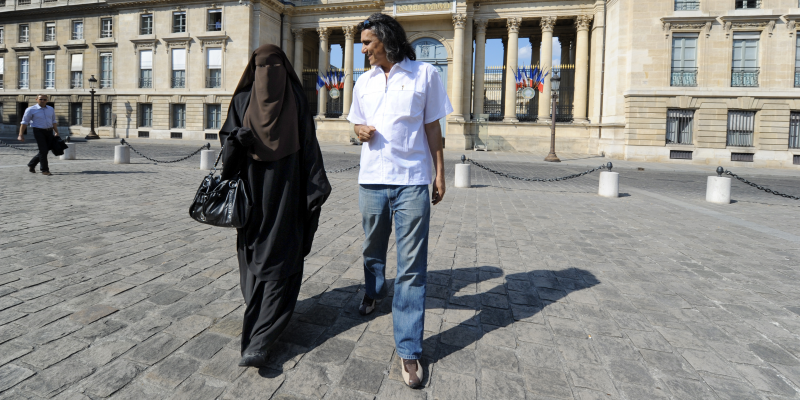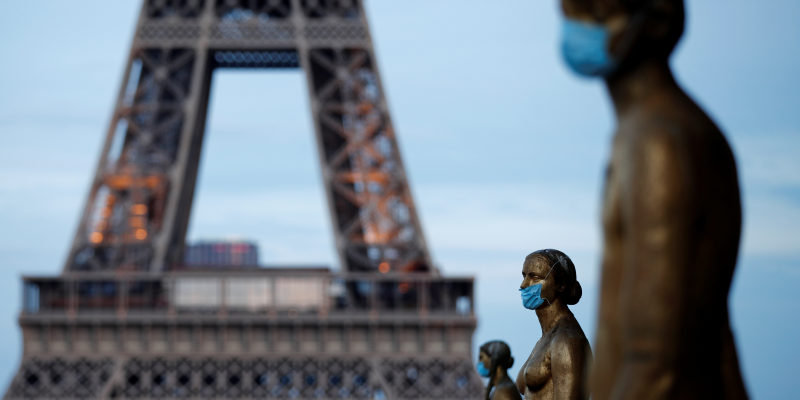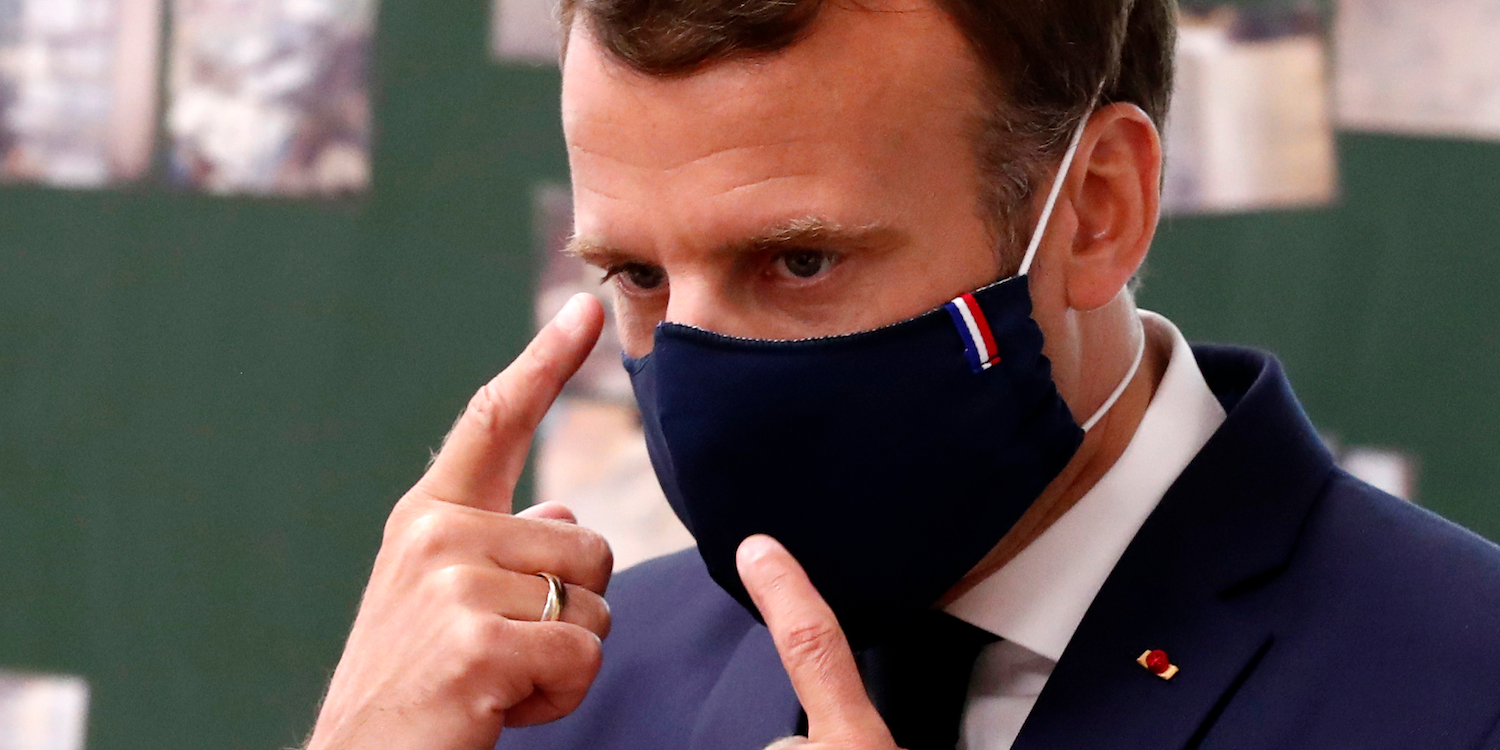- France started easing its coronavirus lockdown on Monday and has mandated that people wear face masks in public.
- Meanwhile, a 2010 ban on Muslim head and face coverings, namely the burqa and niqab, remain in force. The new face mask rule has resurfaced a heated debate over that law.
- The 2010 law was justified on the basis that head coverings worn by Muslim women violated female freedoms. It only permitted face coverings if justified for health reasons.
- Many Muslims have pointed out the irony of making people wear face masks while still keeping the 2010 law.
- “Even in the face of global pandemic France won’t admit its bigoted burqa ban is wrong,” tweeted Qasim Rashid, a candidate for the US Congress for Virginia state.
- Visit Business Insider’s homepage for more stories.
From Monday, all people in France must now wear a face mask in public to avoid further spread of the COVID-19 disease.
However, the burqa, niqab, and other religious face and head coverings remain banned – reigniting a debate over the government’s 2010 ban on religious coverings.
France mandated face masks in public to coincide with a gradual easing of its strict coronavirus lockdown, which started Monday.
Under these new rules, people can now travel 60 miles from home, and some businesses and schools can reopen. However, bars and restaurants – which have been closed on March 17 – remain shuttered.
Those using public transport, entering certain shops, or attending schools must now wear a mask, the government said.

The issue of face coverings is especially sensitive in France, and has been a major political issue on at least two occasions since the new millennium.
In 2010, the government imposed a ban on Muslim head coverings, namely the burqa or niqab. Those in favor of the bill protected gender equality and women's dignity, and encouraged assimilation into secular French culture. Critics saw it as an attack on religious freedom.
Flouting the law can result in a 150-euro ($162) fine and/or participation in so-called French citizenship education.
The 2010 law states, however, that face coverings are permitted "if it is justified for health reasons."
When asked whether the new coronavirus face mask regulations affected the 2010 law, France's interior ministry told The Washington Post: "Wearing a mask intended to prevent any risk of contagion by COVID-19 does not constitute a criminal offense."
But some Muslims and human rights advocates reacted with a mixture of anger and irony to the new rule.
"Even in the face of global pandemic France won't admit its bigoted burqa ban is wrong," Qasim Rashid, a Muslim candidate for Congress in Virginia's first district, tweeted on Sunday.

Fatima Khemilat, a fellow at the Political Science Institute of Aix-en-Provence, told The Post: "If you are Muslim and you hide your face for religious reasons, you are liable to a fine and a citizenship course where you will be taught what it is to be 'a good citizen.'"
"But if you are a non-Muslim citizen in the pandemic, you are encouraged and forced as a 'good citizen' to adopt 'barrier gestures' to protect the national community."
Kenneth Roth, the executive director of Human Rights Watch, tweeted: "Can the Islamophobia be any more transparent? The French government mandates masks but still bans the burqa."
Years earlier, in 2004, France had also banned people from wearing headscarves in schools. It had also banned the Jewish yarmulke and Christian crosses.
"Muslims see this irony very clearly," Karima Mondon, a high school teacher in Lyon, told The Post.
Faten Bushehri, a producer and YouTuber from Bahrain, also tweeted: "Gotta love France's discriminatory sentiment."

During a visit to an elementary school outside Paris last Tuesday, French President Emmanuel Macron wore a $5 supermarket facemask, emblazoned with the colors of the French flag. (Macron became president in 2017, after both bans were put in place.)
"Nice burqa, Monsieur President..." Arsalan Iftikhar, a prominent international human-rights lawyer tweeted on Monday.
Olivier Roy, a French scholar of secularism and Islam, also told The Post: "If you cover your face for Islam, it's not the republic. If you cover your face for a reason not to do with Islam, it's acceptable."
